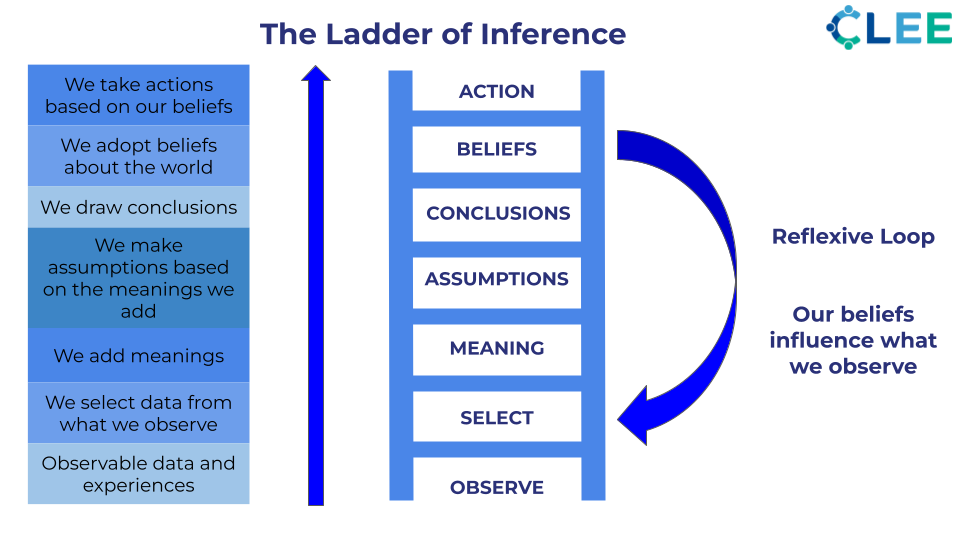This ongoing series provides real-time updates on our innovative USDOE-funded program, Equity Leader Accelerator Program (ELAP), currently underway in Massachusetts.
Our new Equity Leader Accelerator Program (ELAP) launched in Massachusetts in August to support new principal mentorship from experienced leaders in their districts. In the first months of this two-year program, we are already seeing an impact.
The cohort began with elements of CLEE’s Foundations in Facilitative Leadership program through network sessions and individual coaching to build capacity and add new collaborative tools to participants’ leadership practices. This interplay between new tools, coaches, principals, and their district mentors is building a fast track to add these practices directly to their daily work.
One tool that our leaders are deploying is the Ladder of Inference (LOI). It is a visual representation of the practice of slowing down your thinking to avoid using assumptions and biases to jump straight to conclusions. By starting with, and focusing on, evidence in a question or dilemma, you can really get to the heart of the matter, expanding your thinking on what actions to take, rather than relying on assumptions to create a solution that does not match root causes.
One ELAP mentor leader shared how he was using the Ladder of Inference in his practice. It was in the forefront of his mind when working with two staff members who were in a challenging conversation. He used questioning, particularly probing questions, to surface their values and beliefs about the situation. This allowed both individuals to know that they were being heard. This experienced leader found that the individuals were getting into the danger zone and used facilitative skills and strategies, including probing questions, so they could recognize each other’s beliefs and perspectives. The probing questions helped them slow down, come down the ladder, see their assumptions, resulting in a positive resolution to a challenging dilemma.
An early career leader I am coaching shared how the role-play example we used to introduce the Ladder of Inference, which incorporates probing questions, gave her immediate insight on how to navigate a current problem she is facing. Her dilemma was with a staff member around student engagement. In using the ladder, she was able to set direction for how to address the problem, first with observations and then by gathering/selecting relevant data prior to forming conclusions.
Both examples show how the Ladder of Inference is a helpful resource to challenge people to work in their risk/learning zone. I invite you to think about how you can use this tool and probing questions in your work.
You can add the Ladder of Inference, probing questions, and other tools to your practice!

Cheryl McWilliams, CLEE Continuous Improvement Facilitator and Coach
If you are in Massachusetts, it is not too late to join ELAP Now! Spaces are also available in our next cycle in 2026. We can also support Facilitative Leadership and Transformational Leadership Coaching in your setting.
